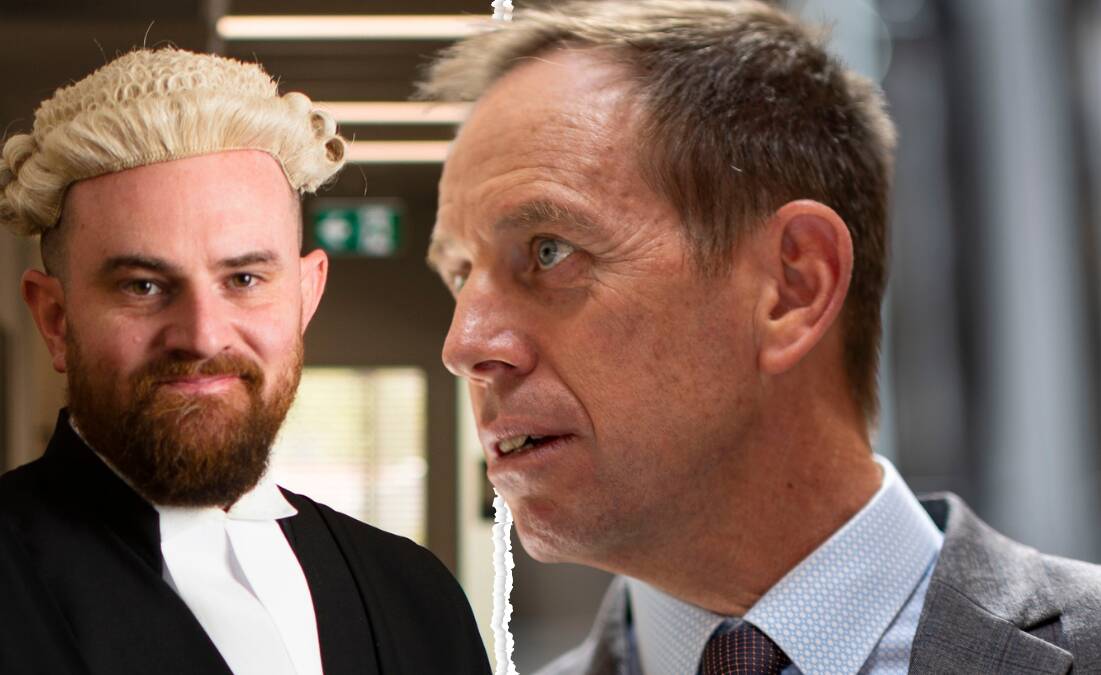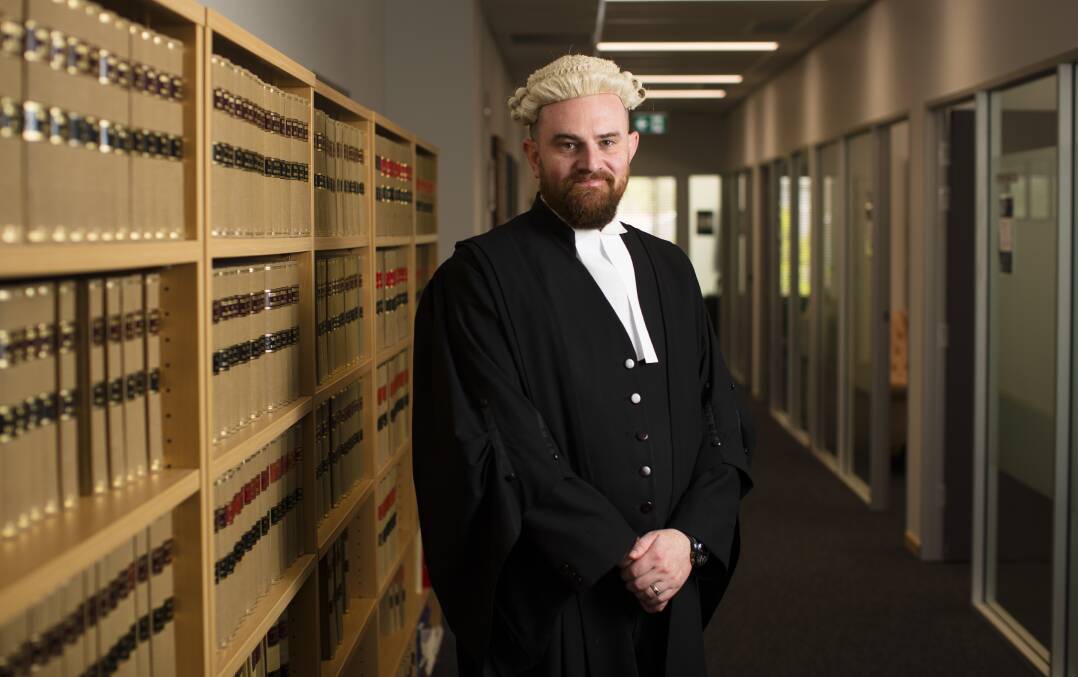The ACT's Attorney-General, Shane Rattenbury, has denied putting improper political pressure on the acting Director of Public Prosecutions to prosecute more people for sexual assault.
Mr Rattenbury said he "emphatically denied" Anthony Williamson SC missed out on the permanent position as a result of their discussions.
Mr Rattenbury said he met with Mr Williamson on January 30 to discuss the director's decision to discontinue sexual assault cases, but said they did not discuss specific cases.

"I received a series of pieces of feedback that raised questions about the rate of discontinuance of the DPP. As a minister, I think it's my responsibility to look into matters like that when they come my way," Mr Rattenbury told The Canberra Times.
"I think it's my job to ensure accountability and to raise those questions and to understand the response of the DPP. I'm very conscious of the independence of the DPP."
Mr Rattenbury said the meeting was "useful for me to understand the mechanisms and safeguards they have in place".
"Certainly I did not give the DDP any directive on how they should approach the matters," he said.
Mr Williamson declined to comment.

People familiar with the situation said Mr Williamson came out of the meeting with Mr Rattenbury clear in his mind he was being chastised for not taking more sexual assault cases to court.
The revelations of the meeting are believed to have caused some difficulty in the Office of DPP, with some staff wondering if other staff have talked to the media.
The Australian on Monday reported it had spoken to a person close to Mr Williamson who described him as "troubled", "unhappy" and "pissed off" by the meeting.
Mr Rattenbury told The Canberra Times: "I've seen the acting DPP a number of times since that meeting and I've had no concerns expressed to me."
Other lawyers are concerned the territory's senior prosecutor should not be pressured to take people to trial by the territory's senior politician with a legal responsibility.

Decisions on whether to take someone to court are meant to be taken on the basis of the evidence and the likelihood of a guilty verdict, and not for political reasons.
Mr Rattenbury said the meeting had not been intended to push a particular agenda.
"It was to understand the circumstances around the concerns that have been raised with me," he said.
"The ACT government has been clear that we want to improve the justice system for people making allegations of sexual assault, and we're trying to do that in a way that protects fundamental principles such as the presumption of innocence while seeking to ensure that the legal process is not retraumatising for people making the allegations."
Mr Rattenbury said an increased conviction rate in sexual assault cases was not a metric the government could use to assess whether the system was improving for complainants.
The ACT government's manual, "The Prosecution Policy of the Australian Capital Territory", says: "Plainly the decision to prosecute must not be influenced by ... any political advantage, disadvantage or embarrassment to the government or any political group or association."
Following the resignation of Shane Drumgold SC in August 2023, Mr Rattenbury instructed the Justice and Community Safety Directorate to run a recruitment process to identify a new director of public prosecutions.
The directorate engaged an external recruitment company, which assembled an interview panel that included Justice and Community Safety Director-General Richard Glenn, a current director of public prosecutions from another jurisdiction and an experienced former prosecutor.
"I was very clear with the [Director-General] there were no predetermined outcomes of the recruitment process," Mr Rattenbury said.
"We wanted to find the best candidate, wherever they came from, whether that was a local, somebody from out of the jurisdiction."
Mr Rattenbury said the preferred candidates as recommended by the independent recruitment panel were the options put to the ACT's cabinet to choose from.
"I emphatically deny the insinuation run by The Australian newspaper that there was a connection between those discussions [with Mr Williamson on January 30] and the outcomes of the recruitment process," he said.
Chief Minister Andrew Barr said he retained confidence in Mr Rattenbury.
"It is appropriate for the Attorney-General to discuss matters of ODPP operations and policy with the Director," Mr Barr said.
Last Thursday, Mr Rattenbury announced that the DPP's job had gone to Victoria Engel, a senior barrister and former Northern Territory deputy director of public prosecutions.
"There were 10 applications for the role of Director of Public Prosecutions. Of the 10 applications, four were shortlisted for interview," Mr Rattenbury said in a statement.
"The panel recommended Ms Engels [sic] as a suitable and preferred candidate for the role of ACT Director of Public Prosecutions.
"The final decision to appoint Ms Engels [sic] to the role of Director of Public Prosecutions was made by cabinet."







